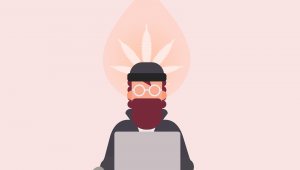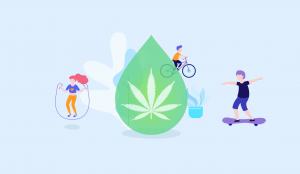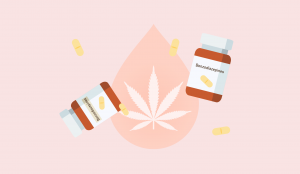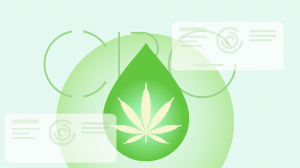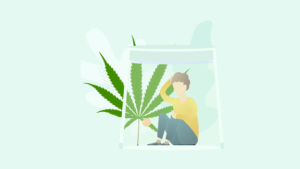Guide to Buying CBD in North America & The Caribbean [2020]
CBD is legal in the USA and Canada, but not Mexico. The CBD market is new and local laws can vary. Learn how to buy quality CBD in North America here.
Canada and the US are the global leaders of the cannabis industry.
North America has the highest density of CBD companies and most relaxed cannabis laws in the world —giving you an incredible selection of CBD brands to choose from.
There are some rules to follow when buying CBD in North America, however — as the laws will vary depending on which country you live in.
While the Northern regions of the continent are much more open to cannabis in general (cannabis is completely legal in Canada and much of the United States) — the lower parts of the region including Central America and the Caribbean take a much more negative stance.
To make things crystal clear, we’ve gathered the essential information to help you learn how to buy CBD if you live in North America or the Caribbean and offer our top-rated CBD oils in this part of the world.
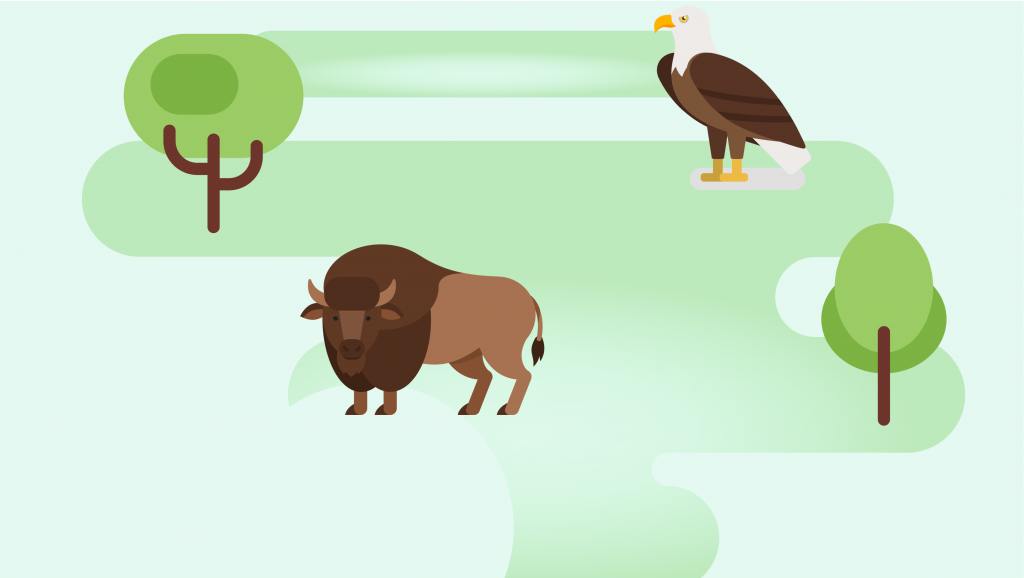
Summary: Buying CBD in North America & The Caribbean — Legality & Where to Buy
- CBD is legal in Canada & the USA and can be bought over-the-counter or online
- The legal THC limit in hemp-derived CBD varies from 0.3% to 1%
- In the USA, each state has its own regulations on CBD
- In Canada, there is no difference between CBD derived from hemp and CBD from cannabis plants with higher THC content
- Cannabis use — including hemp — is mostly prohibited in Central America and the Caribbean
- CBD is highly unregulated in Central America — most countries don’t have specific CBD rules
- Jamaica has decriminalized marijuana, but CBD is difficult to find in local stores
- You can use a mail forwarding service to purchase CBD from companies that don’t ship to your country.
CBD Laws In North America | Select Your Country
Best CBD Oils in North America
| Number | Product | Total CBD | Potency | Cost per mg CBD | Link |
|---|---|---|---|---|---|
|
1 |

Royal CBD Oil |
250 – 1000 mg |
8.3 – 33.3 mg/mL |
$0.15 – $0.26 |
|
|
2 |

Hemp Bombs CBD Oil |
300 – 4000 mg |
10 – 133.3 mg/mL |
$0.07 – $0.17 |
|
|
3 |

Kat’s Naturals Relax THC-Free Sublingual CBD Oil |
50 – 300 mg |
10 mg/mL |
$0.20 – $0.40 |
|
|
4 |

Lazarus Naturals THC-Free CBD Isolate Tinctures |
750 – 6000 mg |
15 – 50 mg/mL |
$0.03 – $0.05 |
|
|
5 |

Charlotte’s Web CBD Oils |
210 – 6000 mg |
7 – 60 mg/mL |
$0.05 – $0.19 |
How to Buy CBD Products in North America & Caribbean
Buying CBD products in Canada and the United States is very simple. You can order products online and have them delivered, or pick them up at a local dispensary. There are no prescriptions or paperwork needed to get a bottle of CBD.
The Caribbean is different — CBD is tightly regulated in some places, and completely banned in others.
Where CBD is legal, it’s recommended you order your CBD from suppliers in the United States and have it shipped.
In many parts of the Caribbean, your safest option is to obtain a medical prescription from a licensed doctor and buy CBD from a local pharmacy or dispensary. Even importing from the states will require a prescription for these countries.
In general, buying CBD products online is the best option. This goes for Canadian and American residents as well. The online market offers much better pricing and selection than buying CBD from local shops. It also helps eliminate the issue of buying CBD oils that have been stored improperly on store shelves — reducing their potency.
If you want to buy CBD from a company that doesn’t ship directly to your country, you can use a mail forwarding service like Shipito to get the package delivered to your door (more on how this works later).
A Brief History of Cannabis Laws in North America
Cannabis — one of humanity’s oldest crops — first arrived in South America, in Chile (1545).
The Spanish conquistadors brought cannabis in the form of hemp for fiber. The Spanish ships needed a supply of hemp ropes and sails.
Hemp was brought to Mexico somewhere in the 1530s, when the Spaniards made the indigenous workers plant hemp in the highlands near where Mexico City is today.
According to history records, French botanist, Louis Hebert was the first to cultivate hemp in North America (Port Royal, Acadia, in 1606). Ten years later, the first permanent English settlement in North America — Jamestown, Virginia — started cultivating hemp for ropes, clothes, and sails.
During the 18th century, colonial Americans were required by law to plant hemp. The cultivation of hemp increased and reached its peak in the 18th and 19th centuries. At the end of the 18th century, the founding fathers of the United States — George Washington, Thomas Jefferson, and John Adams — all owned hemp farms.
At the very beginning of the 19th century, the Lieutenant Governor of Canada brought hemp seeds to the Canadian farmers, finalizing the spread of hemp in North America.
During the 19th century, hemp was widely used throughout North America until 1920, when Mexico became the first country to prohibit cannabis cultivation. The twentieth century is known for the worldwide unfriendliness towards the cannabis plant, including both hemp and marijuana. The recreational use of marijuana became popular, and countries started placing restrictions on the entire cannabis genus — including non-psychoactive hemp plants.
The increased use of marijuana for recreational purposes was one of the two main reasons why so many countries decided banned hemp. The other reason why hemp cultivation declined was the prevalence of the cotton, wood, and synthetic fiber industries, which were cheaper to produce.
Both marijuana and hemp come from the Cannabis sativa species. The main difference between the two plants is the content of the psychoactive compound tetrahydrocannabinol (THC).
Hemp contains insignificant amounts of THC (0.3%), while marijuana’s THC content can reach as high as 30%.
In 1937, the US Marijuana Tax Act brought strict rules around hemp — making its cultivation illegal without a government-issued tax stamp.
North America reintroduced hemp as a legal crop in the 1990s. While Canada legalized industrial hemp in 1998, the USA legalized hemp at a federal level in 2018 with the introduction of the Agriculture Improvement Act.
Hemp cultivation in Mexico remains illegal, but the government is having a serious discussion about cannabis legalization in the near future.
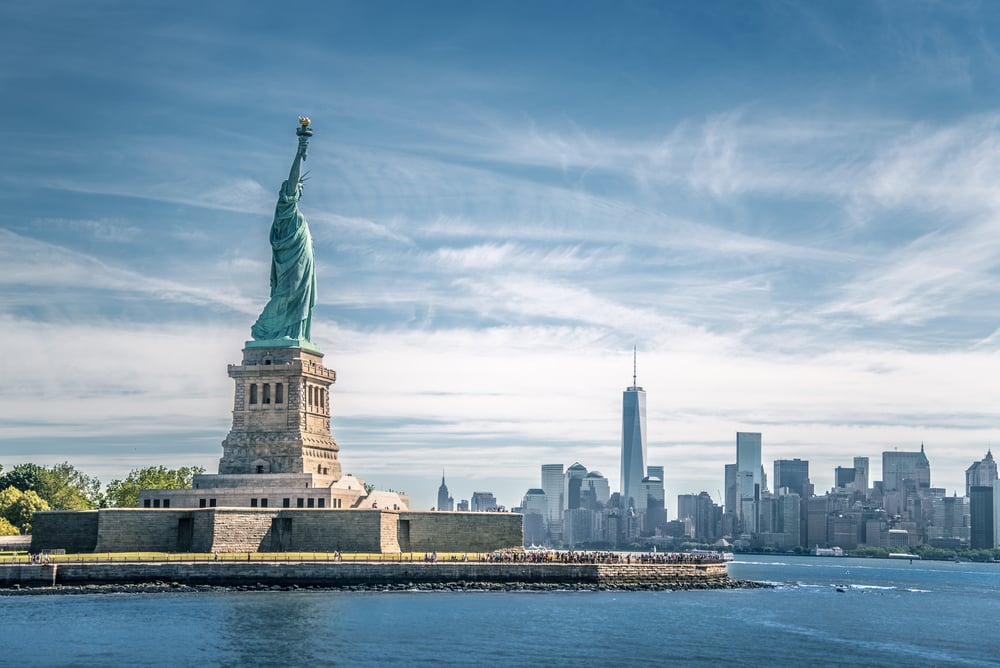
A Brief History of Cannabis Laws in Central America & the Caribbean
During the Atlantic slave trade, Portuguese colonizers brought African slaves to Brazil. In 1501, Angolan slaves arrived in the Dominican Republic, Jamaica, Puerto Rico, and Cuba to work on sugar cane plantations — the most lucrative crop to colonizers at that time.
The Angolan slaves would transport cannabis seeds in rag dolls tied to their ornate clothes. Psychoactive cannabis was used for religious and festive purposes.
Slowly, indigenous people from Central America adopted cannabis use for recreational and medicinal purposes. Cannabis consumption passed from Brazil and Central America to the Caribbean by the end of the 19th century.
During the 19th century, the use of cannabis in religious contexts increased among the indigenous people of Jamaica (Rastafarians) and Panama.
Although colonizers brought hemp seeds to South America for cordage, sails, and food, hemp wasn’t a prevalent crop in Central America and the Caribbean. Cannabis use remained popular primarily for its psychoactive effects.
The prohibition of cannabis in Central America and the Caribbean started in the early 20th century.
Jamaica was the first country to ban cannabis with the Ganja Law (1913), supported by the white elites and the Council of Evangelical Churches in Jamaica.
Most countries didn’t make a distinction between the two cannabis plants, and hemp fell under the same restrictions as marijuana.
The prohibitionist approach towards cannabis carried throughout the years — the majority of countries in the region still have restrictive hemp and marijuana laws.
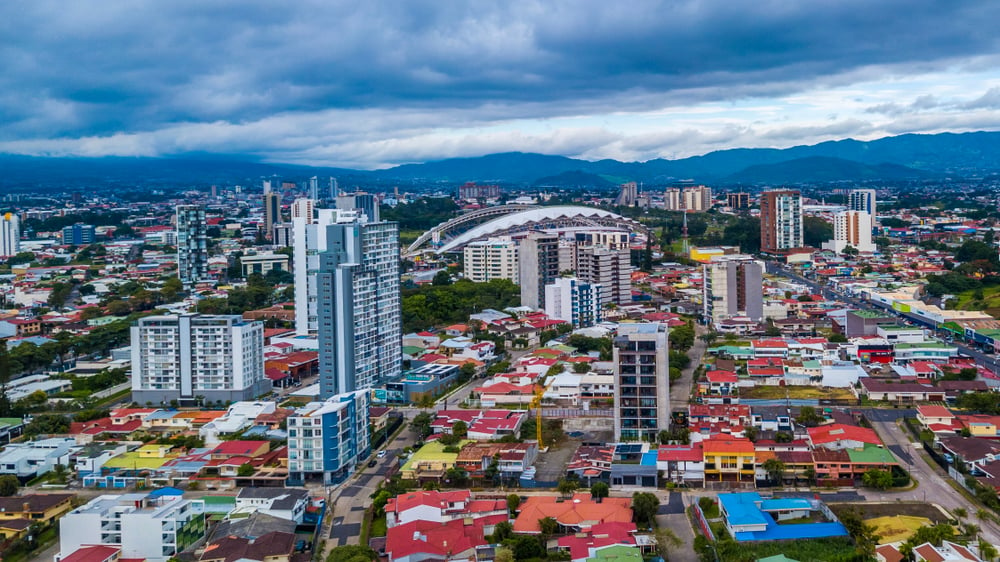
Is CBD Legal in North America?
The year 2018 brought progressive regulatory changes to the United States and Canada. While there’s more work to be done, CBD is finally legal in these countries on a federal level.
The USA, Canada, and Mexico understand that the high demand for the famous cannabinoid and the many uses of hemp are of great economic interest. Hemp legality and CBD laws still vary from one country to another, as well as from one state to another (in the United States).
Central America and the Caribbean have extremely restrictive hemp laws. Regardless of its lack of psychoactive effects, hemp is lumped into the same category as marijuana. Long-term wars on drug trafficking resulted in a zero-tolerance for cannabis — one of the most lucrative plants for drug cartels.
Jamaica is the only country in the region with eased cannabis laws. A few other countries allow CBD for medical use only.
Many Central American and Caribbean countries don’t differ hemp from marijuana.
1. The United States of America
Verdict: Completely Legal
On December 20th, 2018, the US Agriculture Improvement Act removed hemp and all its parts from the Controlled Substances Act.
At a federal level, hemp-derived CBD in the USA is completely legal. While local laws can vary from one state to another, you can buy CBD legally both in-store and online.
Only a small handful of conservative states retain restrictive cannabis laws — where CBD is available only under specific conditions or is outright banned. This means the people living in these states are caught in a bit of a legal grey area as the compound is legal federally, but illegal on a state level.
Buying CBD in the United States
2. Canada
Verdict: Completely Legal
Compared to Mexico and the USA, Canada has the friendliest CBD laws. They were the second country (after Uruguay) to legalize cannabis across the board for both medical and recreational use.
In October 2018, Canada established the Cannabis Act, making CBD a completely legal product that can be purchased without a prescription.
Canada differentiates hemp from marijuana — it defines hemp as a cannabis plant with a THC content of 0.3%. This distinction is important because hemp products can be sold as nutritional supplements, while marijuana plants need special licenses by the vendor to be able to sell it. There’s also a special tax implemented on marijuana-based products.
3. Mexico
Verdict: Legal Grey Area
In November 2018, the Federal Commission for Protection Against Sanitary Risks (COFEPRIS) authorized the import of 38 CBD products with a THC limit of 1%, issuing 19 additional permits for CBD import three weeks later.
On December 1st, Mexico chose a new government, which revoked COFEPRIS’s decision on import permits. The policy changes left CBD in a legal grey area. In the meantime, the country is working on a bill that would legalize cannabis and set CBD and THC limits in cannabis products.
This bill is still in progress.
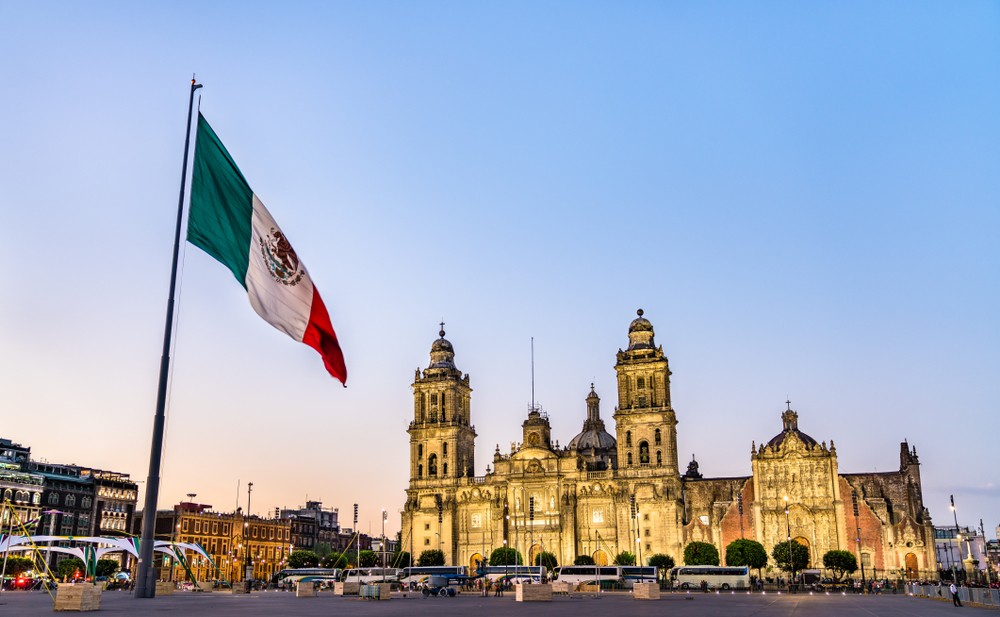
4. The Bahamas
Verdict: Banned
In January 2018, the Caribbean Community Regional Commission (CARICOM) discussed cannabis decriminalization, noting that the country’s economy could benefit from the regulation of cannabis sales.
In April 2019, the Minister of Health, Duane Sands, announced that cannabis remains illegal. The prohibition includes hemp and its derivatives, including CBD.
There are various CBD products on the market in the Bahamas, but the minister has warned that these products are illegally imported. On the other hand, customs have said that there are no specific restrictions on the import of CBD products.
Any action related to any cannabis plant can bring a hefty fine or imprisonment, depending on the type of criminal offense. Refrain from buying illegal CBD in the Bahamas.
5. Belize
Verdict: Legal for Medical Use
As of October 2019, Belize’s government is working on establishing its hemp industry.
Currently, hemp cultivation in Belize is legal, but it’s not completely regulated. Hemp-derived CBD is authorized only for medical use and is available via prescription.
If you’re looking to use CBD for personal use, consider buying it online.
NOTE: Belize border forces are rigorous due to the illegal drug trafficking in South America, and they could confiscate your CBD.
While the laws on drugs don’t have specific penalties for CBD, it’s currently prohibited to import hemp.
6. The Cayman Islands
Verdict: Legal for Medical Use
The Cayman Islands amended its Misuse of Drugs Law, allowing the use of cannabis extracts and tinctures of cannabis for medical or therapeutic purposes.
CBD is available with a prescription from a licensed doctor. However, it must be imported as the territory doesn’t allow hemp cultivation and processing.
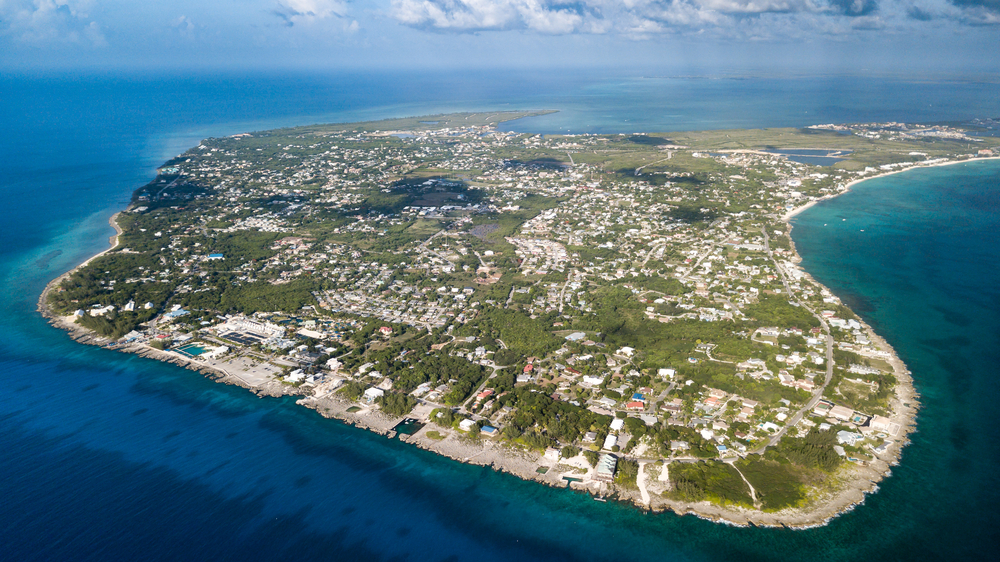
7. Costa Rica
Verdict: Legal Grey Area (Restricted Lean)
According to The Ministry of Health, CBD-based products can be sold if they comply with the health authority’s research, quality, and labeling standards. According to the Ministry, such evaluation hasn’t been established, and there are no registered CBD products.
In May 2019, Congresswoman Zoila Volio submitted the bill Cannabis and Hemp Production Law for Medicinal and Industrial Purposes. If this bill is signed into law, the country will take it a step further and legalize hemp-derived CBD for personal use, and CBD products containing THC would be allowed for medical use with a prescription.
The legislation of Costa Rica doesn’t include a penalty for possession of small amounts of drugs (there’s no defined limit for small amounts), but a research institute’s report says that the police have caught and punished (arrested and jailed) users for possession.
8. Cuba
Verdict: Banned
Cannabis is entirely illegal in Cuba. In May 2019, Cuba ratified its policy Zero tolerance for drugs.
The import of illegal substances and products can be penalized with a hefty fine or jail time.
9. El Salvador
Verdict: Banned
Cannabis is completely illegal in El Salvador.
The law regulating drug-specific activities prohibits the whole plant (including its seeds, inflorescence, and derivatives).
Importing cannabis is strictly prohibited, and any individual caught importing cannabis could be accused of illicit drug trafficking.
10. Guatemala
Verdict: Banned
Guatemala has prohibitionist laws on cannabis.
Any illegal activities related to cannabis can lead to a harsh penalty. The Guatemalan law against Narco-Activity includes several types of punishments on cannabis-related crimes:
- Death penalty
- Imprisonment
- Fine
- Absolute or specific disqualification
- Expulsion from the national territory of foreigners
- Publication of the conviction
Refrain from buying or importing any cannabis product in Guatemala.
11. Haiti
Verdict: Banned
Any possession of cannabis is illegal in Haiti.
12. Honduras
Verdict: Banned
The country’s law on Illegal Use and Illicit Traffic of and Psychotropic Substances prohibit all Cannabis sativa plants and its derivatives.
13. Jamaica
Verdict: Unrestricted
In 2015, Jamaica amended its drug legislation, decriminalizing the possession of up to 57 grams of ganja (marijuana). Each household can grow up to five plants. Rastafarians aged 18 years and older can apply for a license to cultivate cannabis for religious purposes.
The Cannabis Licensing Authority (CLA) controls Jamaica’s legal ganja and hemp industry. In May 2019, authorities announced that they’re not planning to develop the hemp industry in the next few years, as hemp cross-pollination is a threat to the quality and survival of ganja varieties.
While CBD is an unrestricted product, finding quality hemp CBD in Jamaica can be difficult, as the main focus is on medical marijuana products. If you have a doctor’s prescription, you can buy CBD from medical marijuana dispensaries. Your best option is to buy CBD online.
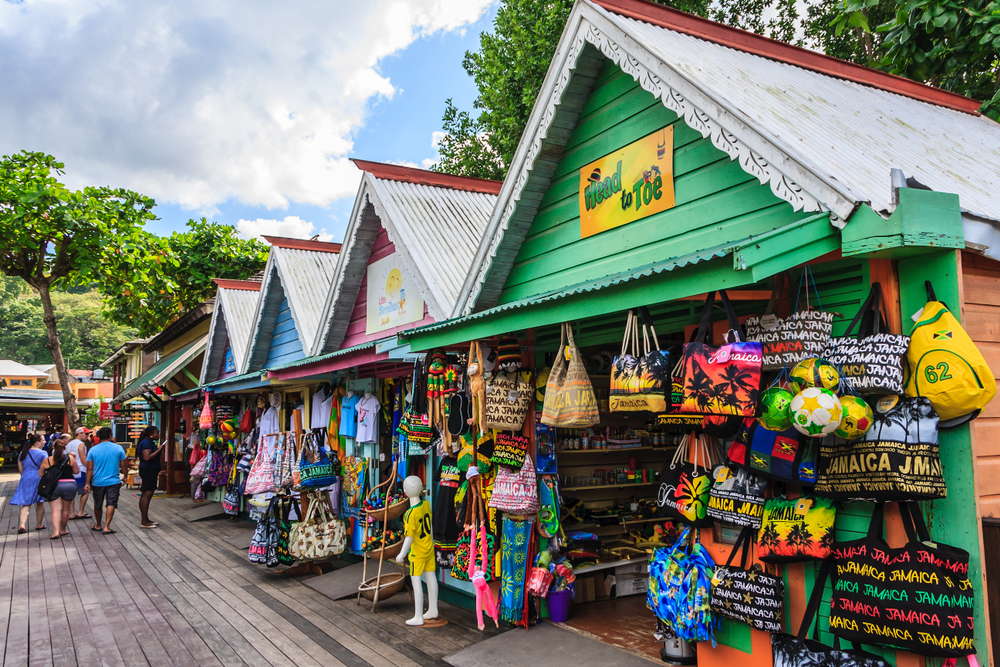
14. Nicaragua
Verdict: Banned
Cannabis is considered a drug in Nicaragua, and any possession can lead to an arrest. The penalties for possession of small amounts of cannabis are days-fine and community service.
A days-fine is a unit of fine payment based on the offender’s daily personal income. When the offender receives a day-fine sentence, it means he or she must pay an amount calculated as a percentage of his daily income.
If the court punishes the lawbreaker with a 30 days-fine, the number of days will be multiplied to his daily income.
Example: 30 days-fine x $5 daily income = $150 fine
15. Panama
Verdict: Legal for Medical Use
As of 2018, Law 595 authorizes the medical use of cannabis in Panama. Under this law, the definition of cannabis includes both marijuana and hemp.
Patients can get CBD only via medical prescription. The country imports CBD through the National Pharmacy and Drug Directorate (Ministry of Health).
You may import CBD with a medical cannabis prescription. For any other purpose of use, CBD is prohibited.
The penalty for possession of small amounts of drugs for personal use is 200 to 365-day fine.
How To Avoid Poor-Quality CBD Products
Before you buy CBD, you should know how to shop in the abundant CBD market, and what makes CBD a first-rate product.
The quality and efficacy of CBD depend a lot on the hemp origin. Hemp is a bio-accumulator, meaning that the plant can draw up toxins from the soil. While this is good for the environment — hemp cleans the air and soil — it can concentrate harmful chemicals like heavy metals or pesticides in the leaves and stalks of the plant. These toxic compounds can end up in the final product and affect its quality.
Research the CBD product before you buy it. You want to make sure that you won’t be paying for CBD that contains pesticides and metals.
Have a look through our many product reviews to help you decide on the products that offer what you’re looking for before you spend your hard-earned money.
Here’s what to look for when buying CBD products online:
- Avoid products that make claims that are too good to be true
- Look for products that have been third-party tested
- Find companies that source hemp from reputable or organic farms
- Read reviews on the product before you buy it to see what others think about it
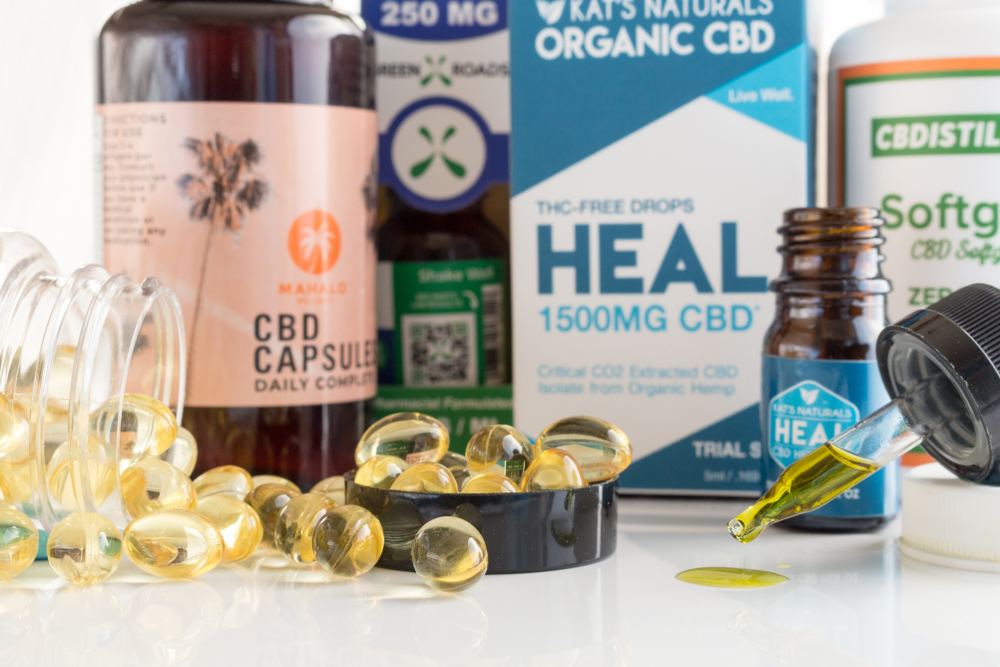
How Mail Forwarding Works
A mail forwarding service can help you if you’re buying from a company that doesn’t ship CBD directly to your country. It serves as a middle-man to receive your product, before reshipping to your final address. This service is especially useful for people living in Central America and the Caribbean regions — as many US-based CBD companies don’t ship directly.
Mail forwarding allows you to use a local address during the checkout phase from the company you’re buying from, and have your package redirected to your final address anywhere in the world.
When you register on the mail forwarding company’s website, you’ll receive an address that the company will ship to — with companies like Shipito, this means a US-based address. Once you place your order, enter the mail forwarding address as your delivery address. Your package will arrive at this address and receive new stamps to redirect the package to your address.
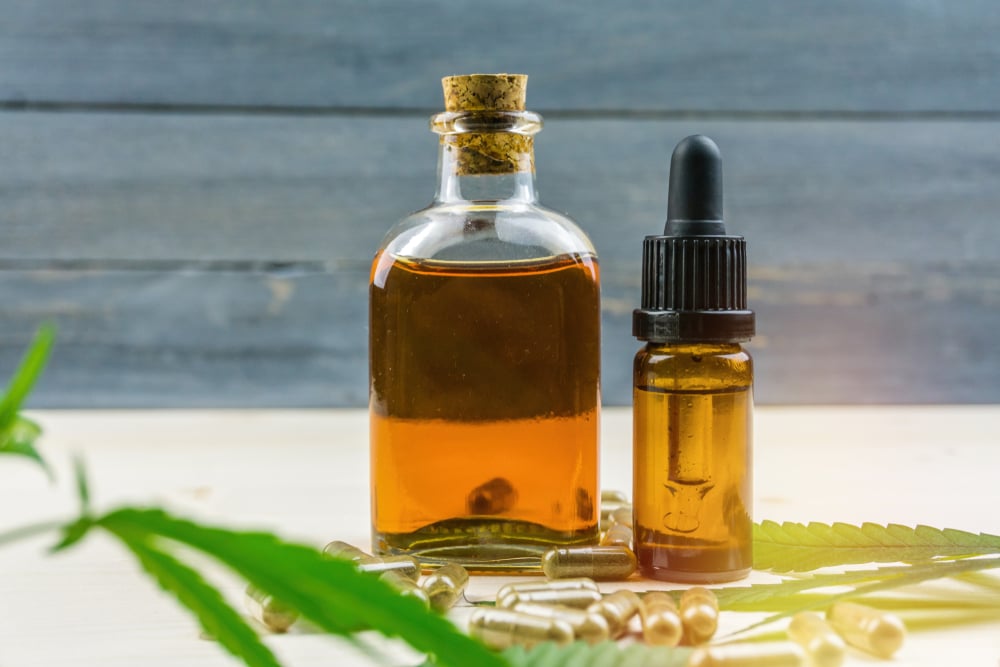
The Future of CBD in North America & The Caribbean
1. North America
The North American continent is one of the most favorable regions of the world when it comes to the CBD industry. Some laws are still restrictive, but these don’t usually come with harsh penalties (many CBD shops — both local and online — exist without interference from the authorities).
CBD is either completely legal in North America, or currently in transition and on its way to become a completely legal product (Mexico).
On a global level, North America is the leader in the CBD industry — accounting for the bulk of the economic force behind the hemp industry as a whole.
The future of CBD in North America is promising, as the countries in this region continue consolidating and removing restrictions to both hemp and marijuana.
2. Central America & The Caribbean
The conservative laws in Central America and the Caribbean are rooted deep down in the drug trafficking issue. Most countries have zero tolerance for drugs, and the prohibition on cannabis has strengthened over the years.
The lack of differentiation between hemp and marijuana has left CBD unregulated.
In the last few years, South America made regulative changes, allowing CBD for medical use. Paradoxically, this has only encouraged the Central American countries to tighten their cannabis laws instead of making them more progressive.
It seems CBD’s rise in popularity around the world and neighboring regions has little to no effect on the Caribbean and Central American prohibitionist politics.
The few countries allowing CBD could be the hope that things will change in the future, but their laws are still strict. Jamaica outstands with its progressive ganja law, but the lack of regulations in the hemp industry is worrying and could slow the development of the CBD market.
The removal of the stigma around CBD in Central America and the Caribbean will take time.
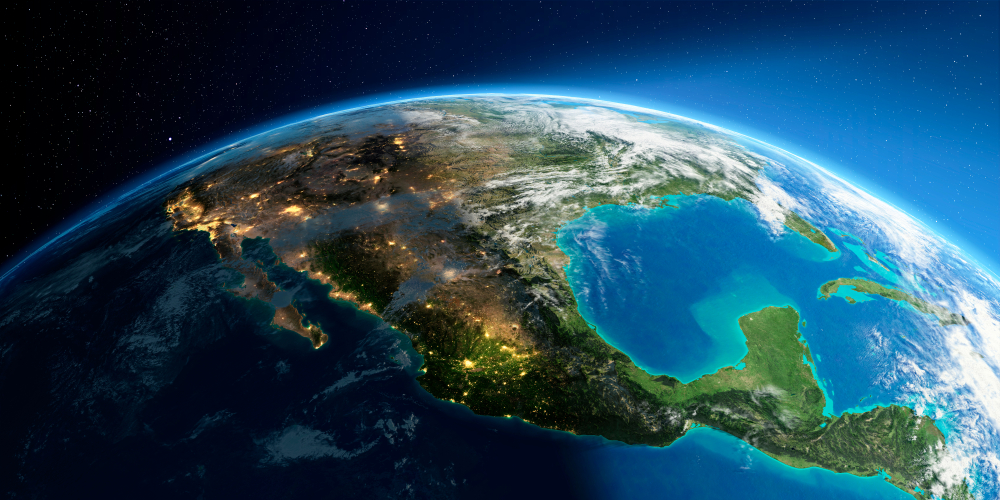
Final Thoughts: Buying CBD in North America
North America offers a great deal of CBD options, letting you choose what suits you the best. This part of the world has the highest density of hemp companies and products in the world.
Meanwhile, the more tropical neighbors in Central America and the Caribbean have some of the strictest laws against cannabis (including hemp and CBD) in the world — largely as a result of difficulties combatting the illegal drug trade in the region.
In some countries you can even go to jail for importing CBD or other hemp products — so always check with your local laws before ordering CBD. Some countries, like Jamaica, Belize, or the Cayman Islands allow CBD imports with a valid doctor’s prescription.
If CBD is legal in your country (or state), we recommend shopping for your CBD products online. Here you’ll find a larger selection, better pricing, and can have your products shipped directly to your door.
Have a look through our product reviews to see which products are best suited for you.
How are CBD laws in your country? Notice any updates we should make to this guide? Let us know in the comment section below!
Buying CBD in North America & the Caribbean
What Type of CBD Products Are You Looking For?
Signup to our newsletter
Be the first to know about our newest arrivals and special offers!
